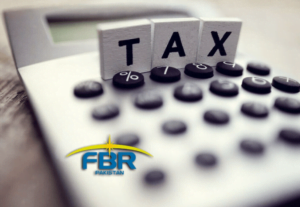FBR to Fix Minimum Values of Steel Products for Sales Tax.
FBR Implements Dynamic Sales Tax Assessment for Steel Products in Pakistan
The Federal Board of Revenue (FBR) of Pakistan has announced a significant shift in the way sales tax is assessed on steel products.
Read More: 25% Sales Tax Charged on Locally Manufactured Vehicles
In a move aimed at ensuring fair taxation and addressing market fluctuations, the FBR will now fix minimum values of steel products on a quarterly basis.
This decision comes after consultations with the Pakistan Association of Large Steel Producers (PALSP).
What Does This Mean for Steel Businesses and Consumers?
Previously, a fixed minimum value was set for steel products through SRO 501(I)/2023. This value served as the basis for calculating sales tax owed by steel manufacturers and distributors. However, concerns arose due to the dynamic nature of steel prices. Fixed minimum values might not accurately reflect current market conditions, potentially leading to inaccurate tax assessments.
Introducing a More Responsive Approach
The new policy addresses these concerns by establishing a more responsive system for determining minimum values. Here’s a breakdown of the key points:
- Quarterly Minimum Value Adjustments: The FBR will now revise minimum values for steel products every quarter, ensuring they align with evolving market prices. This approach aims to reflect the true value of steel, leading to a more accurate sales tax assessment.
- Field Office Recommendations: The FBR will rely on recommendations from its field offices, such as Large Taxpayer Offices (LTOs) and Regional Tax Offices (RTOs), to determine the revised minimum values. These offices are positioned to gather real-time data on market trends, allowing for informed decision-making.
- Market Price Data Collection: To facilitate this process, the FBR has instructed field formations to collect data on current market prices of steel products. This data will be crucial for setting realistic minimum values for each quarter.
- Random Market Surveys: The FBR is also implementing a system of random market surveys conducted by field offices. This will supplement the data collected by LTOs and RTOs, providing a more comprehensive understanding of market fluctuations.
Streamlining the Process: Focal Points for Communication
To ensure smooth communication and timely data collection, the FBR has requested Chief Commissioners of Inland Revenue (IR) to nominate dedicated focal points within each field formation. These focal persons will act as liaisons with the Board, providing regular updates on market prices, survey results, and recommendations for revised minimum values.
Benefits and Potential Impact
This new approach holds several potential benefits for both steel businesses and the Pakistani economy:
- Fairer Taxation: By aligning sales tax with actual market values, the FBR can ensure businesses pay their fair share of taxes, promoting a more balanced and sustainable tax collection system.
- Improved Market Transparency: The focus on market data collection and regular revisions will contribute to greater transparency in the steel sector, potentially stabilizing prices and making the market more predictable.
- Reduced Disputes: With minimum values reflecting current market conditions, discrepancies between actual market value and the basis for tax calculation should significantly decrease, minimizing disputes between businesses and the FBR.
Looking Forward: A Dynamic System for a Dynamic Market
The FBR’s decision to implement a dynamic minimum value system for steel products reflects a commitment to a more efficient and adaptable tax collection strategy. By actively monitoring market trends and incorporating on-the-ground data, the FBR aims to ensure fair taxation within the steel sector while fostering greater transparency and stability in the market.
Note: The information above might not be accepted 100%. Please verify from your own sources. We will not be responsible for any kind of loss due to our content.
For more news, please visit Munafa Marketing.




